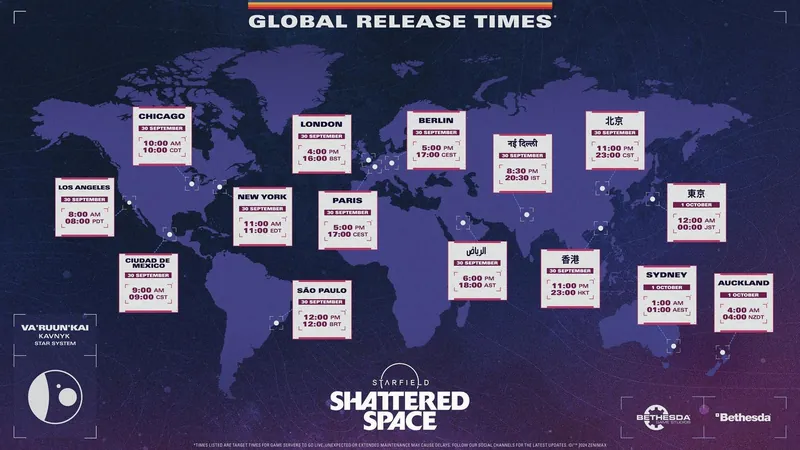
Oil Prices Plummet Amidst Oversupply Concerns and Saudi Strategy Shift
2024-09-27
Oil prices are facing a significant downturn this week, driven by fears of oversupply as reports emerge that Saudi Arabia may pivot back to a strategy focused on increasing market share rather than maintaining high prices. This has resulted in both West Texas Intermediate (WTI) and Brent crude experiencing a notable decline, with WTI falling below the $70 per barrel mark.
On Friday, September 27th, 2024, the backdrop of economic stimulus measures in China and recent hurricanes in the U.S. provided some support for oil prices. However, the dominant narrative this week revolves around Saudi Arabia's potential strategy change, which has unnerved market participants. Analysts speculate that the kingdom could increase its crude production, letting go of its unofficial target of $100 per barrel, igniting fears of a supply glut in the market.
Saudi Arabia’s Game Plan: Higher Production Ahead?
According to reports from the Financial Times, Saudi officials are contemplating a rise in oil output to reclaim market share. This shift could influence OPEC+ discussions in December, with expectations that producers may still pursue production hikes in spite of price drops.
Libya’s Path to Stability: Progress in Talks
In a positive development, UN-led negotiations among Libya’s conflicting governments have reportedly progressed this week, focusing on staffing and decision-making at the Central Bank. This could ease tensions related to the ongoing oil blockade, allowing for a more stable production environment.
Potential U.S. Port Strike on the Horizon
Concerns are mounting as port authorities in multiple U.S. states—including New York, New Jersey, Virginia, and Louisiana—have warned customers of possible operational halts due to a regional strike by port workers scheduled to commence on September 30. The strike poses a risk to container cargo traffic, which could have ripple effects on the oil supply chain.
Litigation Halts Key UK Oil Projects
In the UK, environmental group Greenpeace has initiated legal proceedings that may delay Shell’s Jackdaw and Equinor’s Rosebank projects—two of the largest upcoming oil and gas initiatives in the region. This litigation could impact energy supply and investment strategies moving forward.
Changes in Corporate Structures and International Deals
The U.S. Federal Trade Commission is expected to bar Hess CEO John Hess from joining the board of Chevron as part of Chevron’s $53 billion acquisition of Hess, mirroring previous restrictions placed on Pioneer CEO Scott Sheffield regarding Exxon’s board.
Furthermore, Kazakhstan's Energy Ministry has indicated it anticipates preliminary results from ongoing arbitration proceedings against major oil stakeholders by year-end. The claims involve stakes in the high-value Kashagan and Karachaganak fields.
In another notable transaction, Brazilian energy firm Prio has secured a $1.92 billion deal to acquire a 40% interest in the offshore Peregrino oil field from Sinochem, enhancing its production capacity significantly.
Energy Market Adjustments and Global Developments
Meanwhile, BP is reportedly looking to offload its U.S. onshore wind business to attract new investors, signaling a strategic realignment of its portfolio in low-carbon assets. Natural gas markets are also poised to see output adjustments, with the largest U.S. gas producer, EQT, planning a gradual phase-out of earlier output cuts.
As copper prices surge past $10,000 per metric tonne, buoyed by China’s economic stimulus aimed at reviving its struggling real estate sector, other global energy players need to navigate a complex and changing landscape. Belgium has called for a collective EU approach to prohibit Russian LNG imports, reflecting shifting geopolitical dynamics and energy security concerns.
In the U.S. Gulf of Mexico, oil companies are recovering from Hurricane Helene’s impact, while in Venezuela, a tragic incident involving a sinking barge has disrupted crude production, leading to fatalities during maintenance operations in Lake Maracaibo.
Stay tuned for more developments in the ever-evolving oil and gas sector, as the impacts of these strategies and events could reshape the energy landscape significantly in the coming months.









 Brasil (PT)
Brasil (PT)
 Canada (EN)
Canada (EN)
 Chile (ES)
Chile (ES)
 España (ES)
España (ES)
 France (FR)
France (FR)
 Hong Kong (EN)
Hong Kong (EN)
 Italia (IT)
Italia (IT)
 日本 (JA)
日本 (JA)
 Magyarország (HU)
Magyarország (HU)
 Norge (NO)
Norge (NO)
 Polska (PL)
Polska (PL)
 Schweiz (DE)
Schweiz (DE)
 Singapore (EN)
Singapore (EN)
 Sverige (SV)
Sverige (SV)
 Suomi (FI)
Suomi (FI)
 Türkiye (TR)
Türkiye (TR)